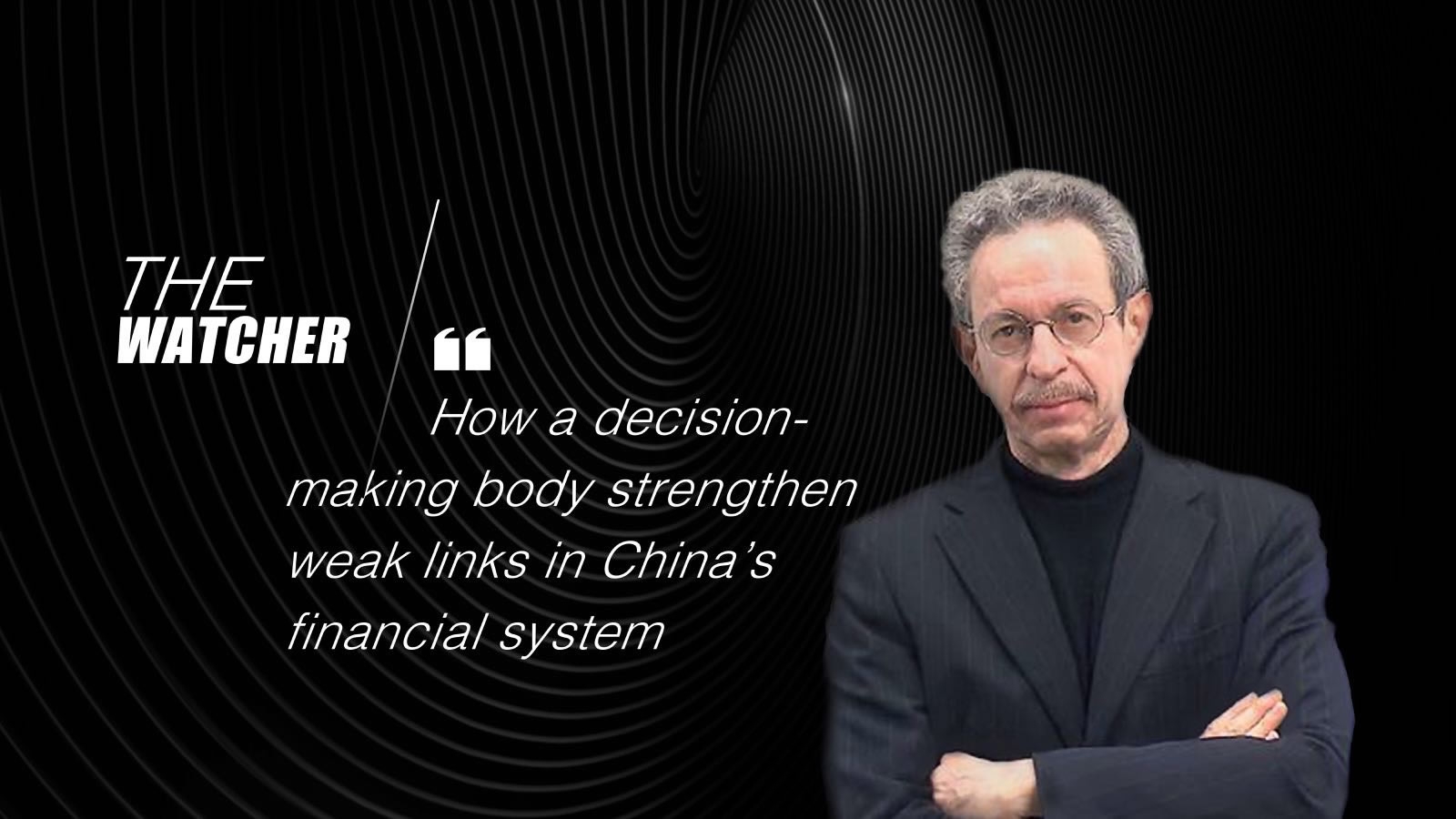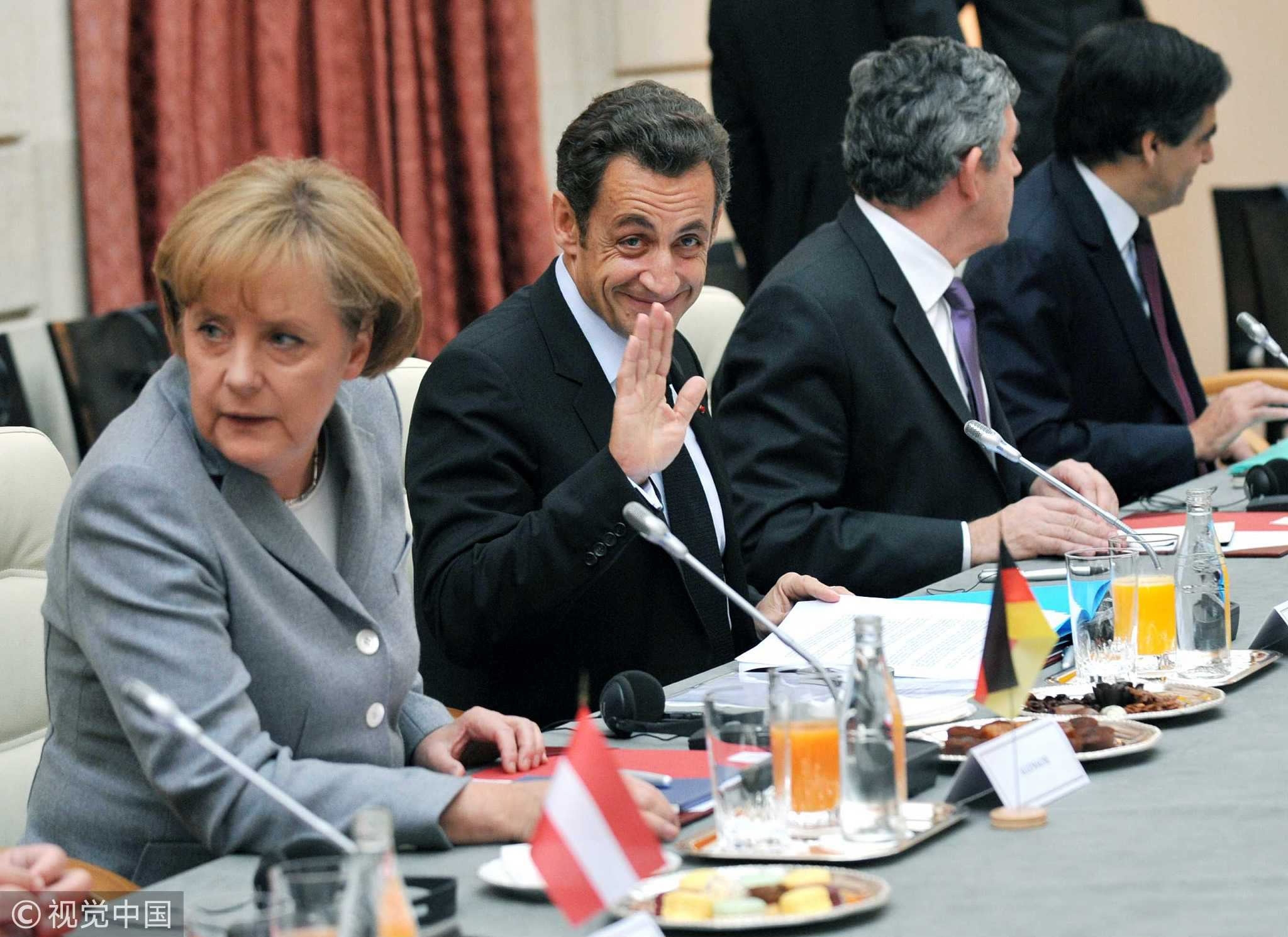
Opinions
12:11, 03-Mar-2018
The Watcher: How a decision-making body strengthens weak links in China’s financial system
Robert L. Kuhn

I’m Robert Lawrence Kuhn and here’s what I’m watching – China’s new Financial Stability and Development Committee, established by the State Council to contain financial risk, arguably China’s most worrisome systemic problem. We all remember the world financial crisis of 2008-2009, how the contagion of debt and risky assets catalyzed financial catastrophe, depressing economies, industries and markets.
China’s Financial Stability and Development Committee is created to prevent similar eruptions. It will be an authoritative decision-making body, not an advisory one, with broad powers and authorities, higher than any ministry. Its mission is to strengthen weak links in China’s financial system, intensify supervision and effect comprehensive coordination with ministries and agencies.

Britain's Chancellor of the Exchequer Philip Hammond and Chinese Vice Premier Ma Kai pose with delegates for a group photo during the UK-China Economic Financial Dialogue at the Diaoyutai State Guesthouse in Beijing on Dec. 16, 2017. /VCG Photo
Britain's Chancellor of the Exchequer Philip Hammond and Chinese Vice Premier Ma Kai pose with delegates for a group photo during the UK-China Economic Financial Dialogue at the Diaoyutai State Guesthouse in Beijing on Dec. 16, 2017. /VCG Photo
The significance of this new committee follows what President Xi Jinping announced at the annual Central Economic Work Conference in December 2017 – the “three tough battles” for the next three years: Preventing and defusing risks (especially financial risks), eliminating absolute poverty and curbing pollution.
Setting three-year targets was itself an innovation (over the traditional one-year targets), thereby strengthening long-term thinking, reducing pressures to make hasty decisions, and giving markets stable expectations. Containing financial risk is the highest priority – reducing corporate debt, controlling local government debt, and scrutinizing the massive “shadow banking” system and recent explosion of wealth management products that often promise unrealistic returns.
The committee will take no chances: It will crackdown on irregular and illegal activities, and intensify regulatory inspection; continue supply-side structural reform (reducing overcapacities); and maintain a proactive fiscal policy, a prudent and neutral monetary policy, and a basically stable Yuan exchange rate. More generally, the committee will deliberate and coordinate financial reform, development and regulatory programs; analyze international and domestic financial risks; and conduct policy research on systemic risk prevention, treatment and financial stability.

German Chancellor Angela Merkel, France's then President Nicolas Sarkozy, British then Prime Minister Gordon Brown, and French then Prime Minister Francois Fillon got ready before a financial crisis summit with Eurogroup heads of state and government European Commission, at the Elysee Palace in Paris, on Oct. 12, 2008. /VCG Photo
German Chancellor Angela Merkel, France's then President Nicolas Sarkozy, British then Prime Minister Gordon Brown, and French then Prime Minister Francois Fillon got ready before a financial crisis summit with Eurogroup heads of state and government European Commission, at the Elysee Palace in Paris, on Oct. 12, 2008. /VCG Photo
The initial chairman of the Financial Stability and Development Committee is Ma Kai, a vice premier with extensive experience in the financial industry. He is expected, however, to soon retire and it will be the next chairman who will have the responsibility and authority. Chinese media does not speculate which officials might be tapped for which positions prior to the formal announcements – though personal speculation is often the favorite “table talk” at elite dinners and lunches in China.
This I can say: If the current consensus view proves to be correct, that we will know in March at the National People’s Congress, the new chairman can and will make things happen, carrying out President Xi’s financial policies with sophistication and vigor. China is determined not to fall victim to financial crisis. I’m keeping watch. I’m Robert Lawrence Kuhn.
(Dr. Robert Lawrence Kuhn is a CGTN anchor, a public intellectual, international corporate strategist and investment banker.)

SITEMAP
Copyright © 2018 CGTN. Beijing ICP prepared NO.16065310-3
Copyright © 2018 CGTN. Beijing ICP prepared NO.16065310-3